6. The Seventh Sign
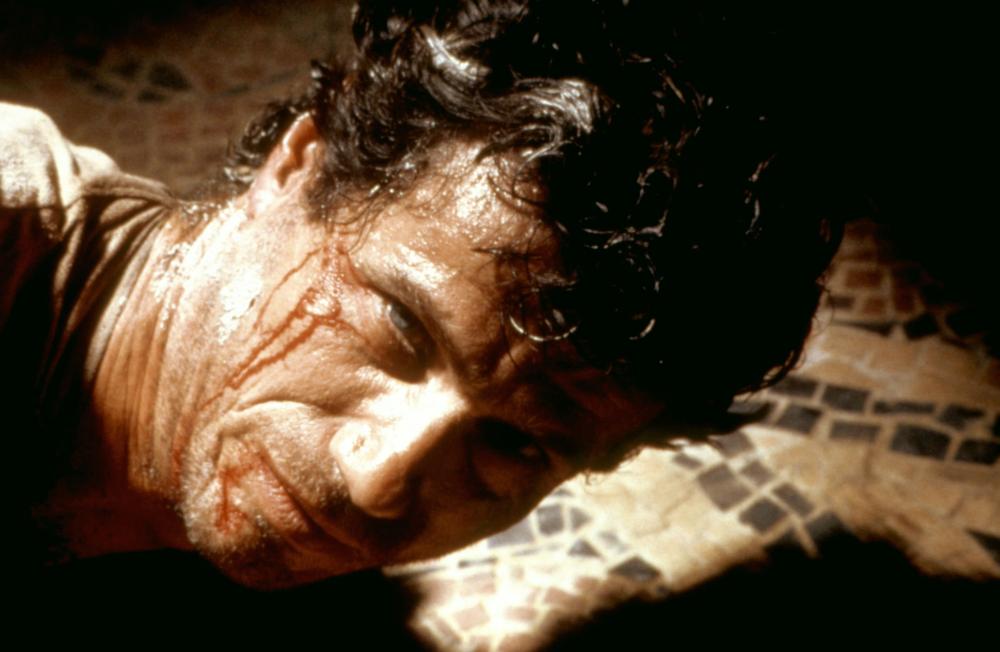
Taking its cue from the father of all scary stories (The Book of Revelations), this Demi Moore vehicle features the end of the world as seen through the eyes of an expectant mother in suburban California.
An interesting inversion of the Mother Mary story joined to the savior/martyr genre, this film finds Moore rushing to discover the clues that confirm the end of the world is in fact happening, and that her new tenant living above her garage may have something to do with it. This film fits into the foggy, yellow lit 80’s religious thriller sub-genre quite well with the likes of Jacob’s Ladder and D.O.A.
What actually ends up happening in this film is almost like a thriller where an immortally cursed man tries to keep the apocalypse on schedule. Moore envisions a historical flashback to the beating of Jesus, where her character seems to be present to witness the aforementioned deathless Roman soldier, cursed to walk the earth until the final judgement, asking if she will be the one to die to save the world.
This is not exactly the second coming, but something from Christian and Jewish apocrypha. A place called the Guff is empty, so there are no new souls to be had on earth. And when the final sign is just about to destroy the world Demi saves the day with her noble sacrifice in childbirth. She gives her new baby her soul, which refills the Guff.
The whole thing is exhausting, in a weird religious paranoia way. And wouldn’t you know it, who is the father of the child that restores souls to heaven, essentially saving mankind? Kyle Reese himself, how is that for typecasting Michael Biehn?
This would be a great film to watch around Easter when all the religious hoopla inspires people to get right with god. This film will scratch your Umberto Eco itch too.
7. Apt Pupil
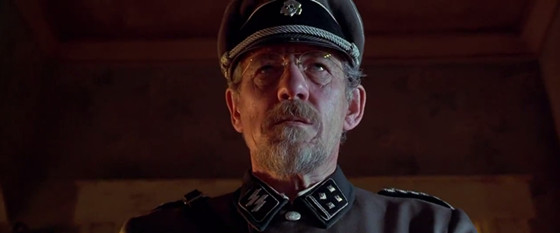
Probably the most critically lauded film on this list, Bryan Singer’s adaptation of Stephen King’s novella skews more toward the psychological horror end of the spectrum. The film asks several questions about the nature of evil, and how the fascination with atrocity can lead people down the wrong path.
The story finds Brad Renfro befriending Sir Ian McKellen’s former Nazi in hiding and gradually taking on the mindset of a SS officer in training. We slowly watch as the screws are turned by both mentor and apprentice not only on the people in their lives, but on each other too.
Eventually things begin to unravel and each character is under threat of exposure by their actions, and the lowly hobo in the wrong place at the wrong time. Up to this point what has come before has certainly been psychologically disturbing to watch, but a murder soon raises the stakes and the characters are past a point of no return. Both are in need of a final solution of sorts.
What the film manages to do to an audience is make them consider what makes true evil in the world. What allows people to disregard not only strangers, but people they have come to admire or teach. What drives an entire set of people into frenzied hatred and violence, lies and denials.
This film makes people uncomfortable for a reason, and there is no certainty when the credits roll either. This movie should be required viewing today as it speaks to a fascination with atrocity that leads to an all-consuming obsession with hatred.
8. The Changeling (George C. Scott)
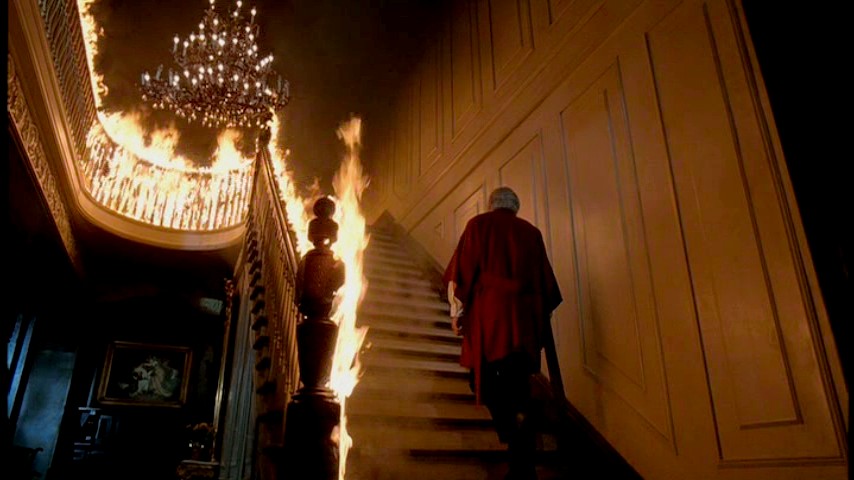
Coming out a few months before 1980’s other haunted house movie, George C. Scott’s film was understandably overshadowed by the other ghosts of small children in peril.
This film fits into the horror genre tropes of: tragedy leads to contact with the spirit world to help solve a crime. Why the ghost picks on a man who just witnessed his wife and child die on a snowy highway is never explained, especially since Scott’s character only comes in contact with the ghost after moving clear across the country from New York to Seattle.
After appropriately taking on a huge house that needs a lot of repairs, the grieving Scott begins to hear things, see things and generally become unnerved. The trick is that he thinks it’s his own loved ones haunting him, but no, the story becomes more convoluted from there.
A young boy was drowned in an upstairs room many years before when the house was owned by a rich family with political ties. The only son, sickly since birth, holds the keys to the kingdom. If he should die after turning twenty one the family fortune goes to charity.
The greedy father can’t have that, so he decides to make sure the young boy doesn’t get anywhere close to twenty one and drowns him in the bathtub. He then adopts and imposter child whom he takes to Europe to grow up, eventually returning to claim his birthright as the dead son.
All of this plot happens while the morose and grieving George C. Scott bellows his way through the house and attempts to write music again. The film is a unique example of what a non-Kubrick horror film involving similar themes from 1980 might look like. There are some genuine scares here as well, much like Don’t Look Now’s eerie mood meets Flowers in the Attic familial dynamics.
9. The Innkeepers
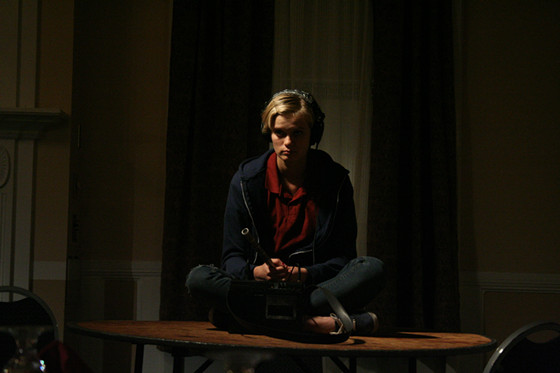
Ti West’s second major directorial effort, after The House of the Devil, is also a slow burn horror film that casts aside the implied supernatural of his breakout film, and plows headlong into ghosts and things that go bump in the night.
The story itself is somewhat slight, but the immersion in the old hotel at the center of the story is really the key to enjoying the most recently released film on this list. Mr. West does have a way of creating texture in his movies where sets look and seem lived in, which gives the story a much needed boost of tension. Ghosts are only scary when you think they’re real.
The story follows some amateur ghost hunters exploring an old hotel on the last weekend of its operation. Several long shots of old beaten down wood, torn carpets and the sagging weight of history keeps the story feeling like a tale told at camp, or around a campfire in the woods.
Eventually a narrative emerges from the ghost hunting, and Kelly MCGillis shows up to warn people of what not to do. And in what is now considered a rule of genre indie cinema, things that seemed peculiar but inconsequential earlier in the film take on new meaning when the trouble starts.
This film has many eerie moments to make you check behind the doors in your home before entering a room. And the thin plot really holds these moments together in an effort to scare, but also unnerve, which is West’s best gift. What happens might not be revelatory in terms of story, but then again, every roller coaster looks the same before you ride it.
10. Needful Things
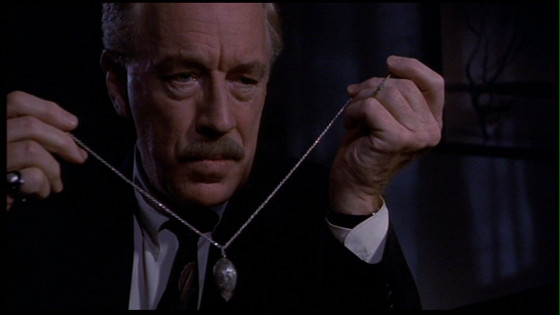
The film version of Stephen King’s novel was poorly received at the end of summer in 1993. The story falls solidly into the “devil comes to town,” genre of horror.
Played with relish by Max von Sydow, the main villain, Leland Gaunt, opens a store in Castle Rock, Maine called Needful Things. There is no attempt to disguise the mysterious shop or owner as anything but malevolent, and the ensuing film, full of veteran character actors taking the production semi-seriously, is a fun horror romp that asks some big questions.
One thing the film sets up well is that the town is already brimming with tension before Leland arrives. Old grudges and rivalries are on full display, most notably presented through Amanda Plummer and Valri Bromfield’s ongoing feud that escalates when a local boy “pays” for his needful thing (a Mickey Mantle rookie card) with a set of small pranks.
Similar feuds erupt out of the shadows after more elaborate pranks until the town is devastated and nearly destroyed. And before the credits roll you see the same long black car leave Castle Rock to head elsewhere to do the same damage.
What makes this film worth a revisit are the unhinged performances, but also the nostalgia of middling Stephen King adaptations from the 90’s. There is a studio created feel to this film that feels like a comforting snack on a fall Friday night.
Author Bio: Andrew Bockhold is a writer from Ohio. You can check out his writing here, and here. You can also find him working at a small university during the day, and feeding his addiction for movies at night.